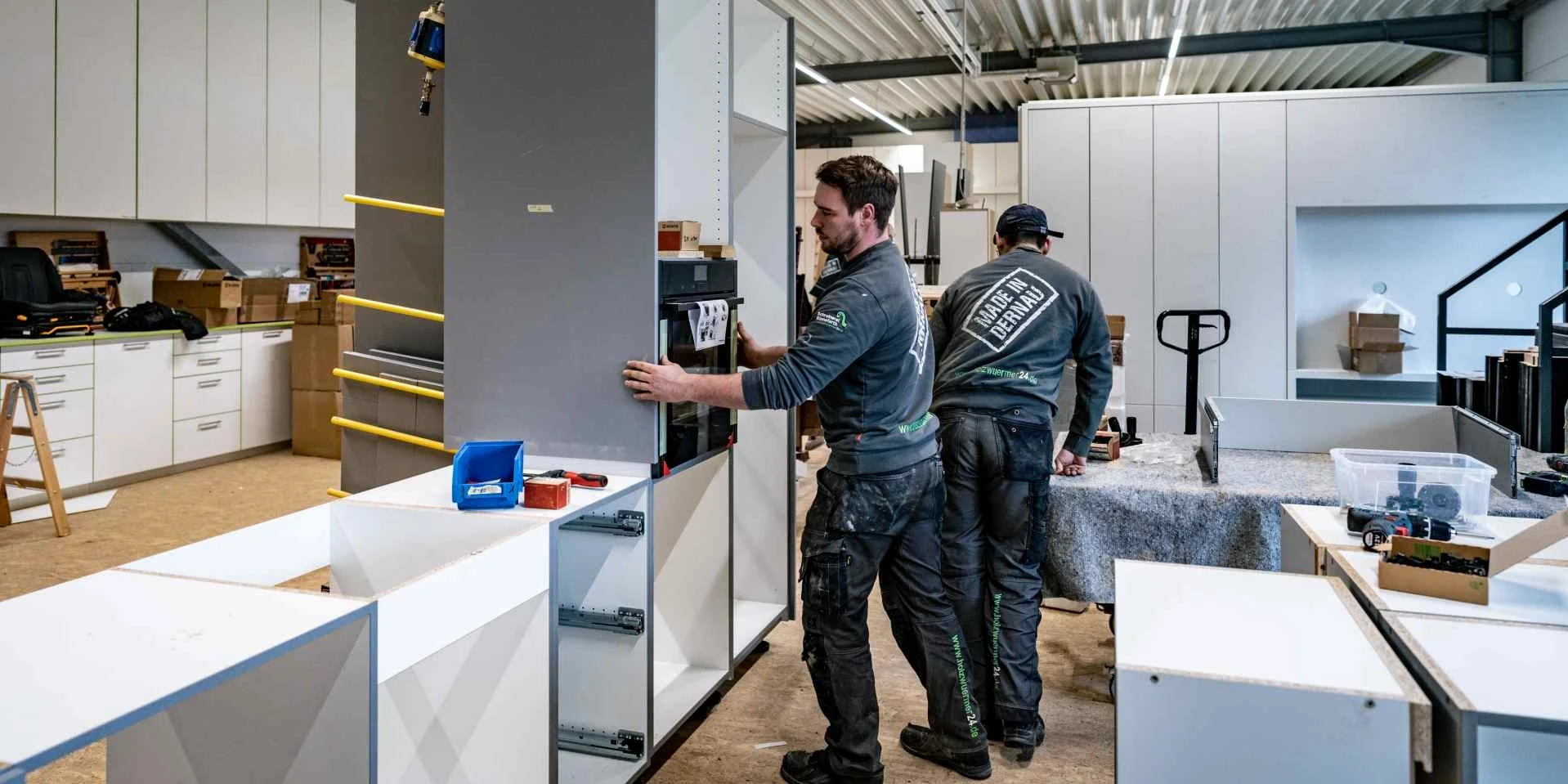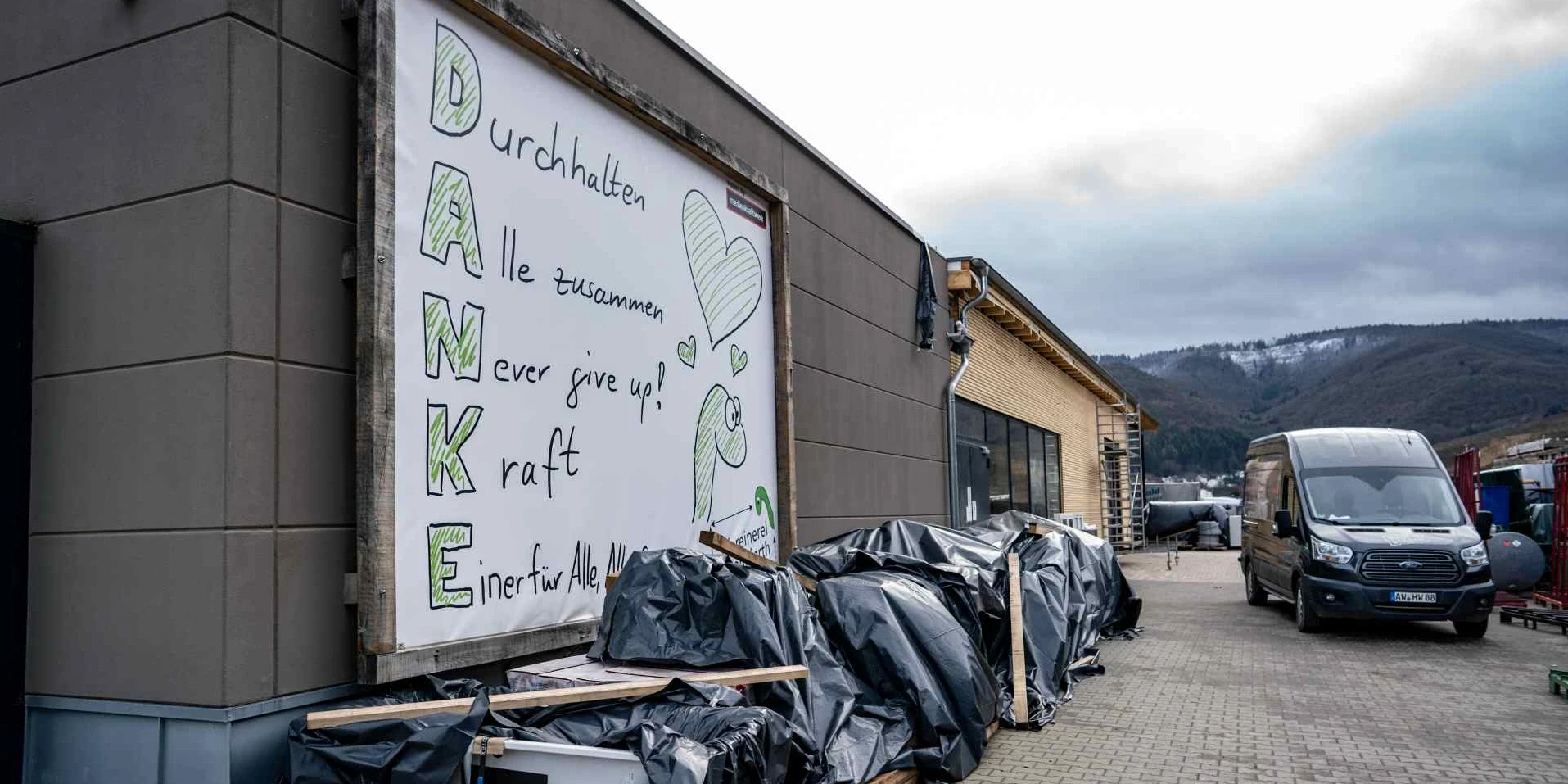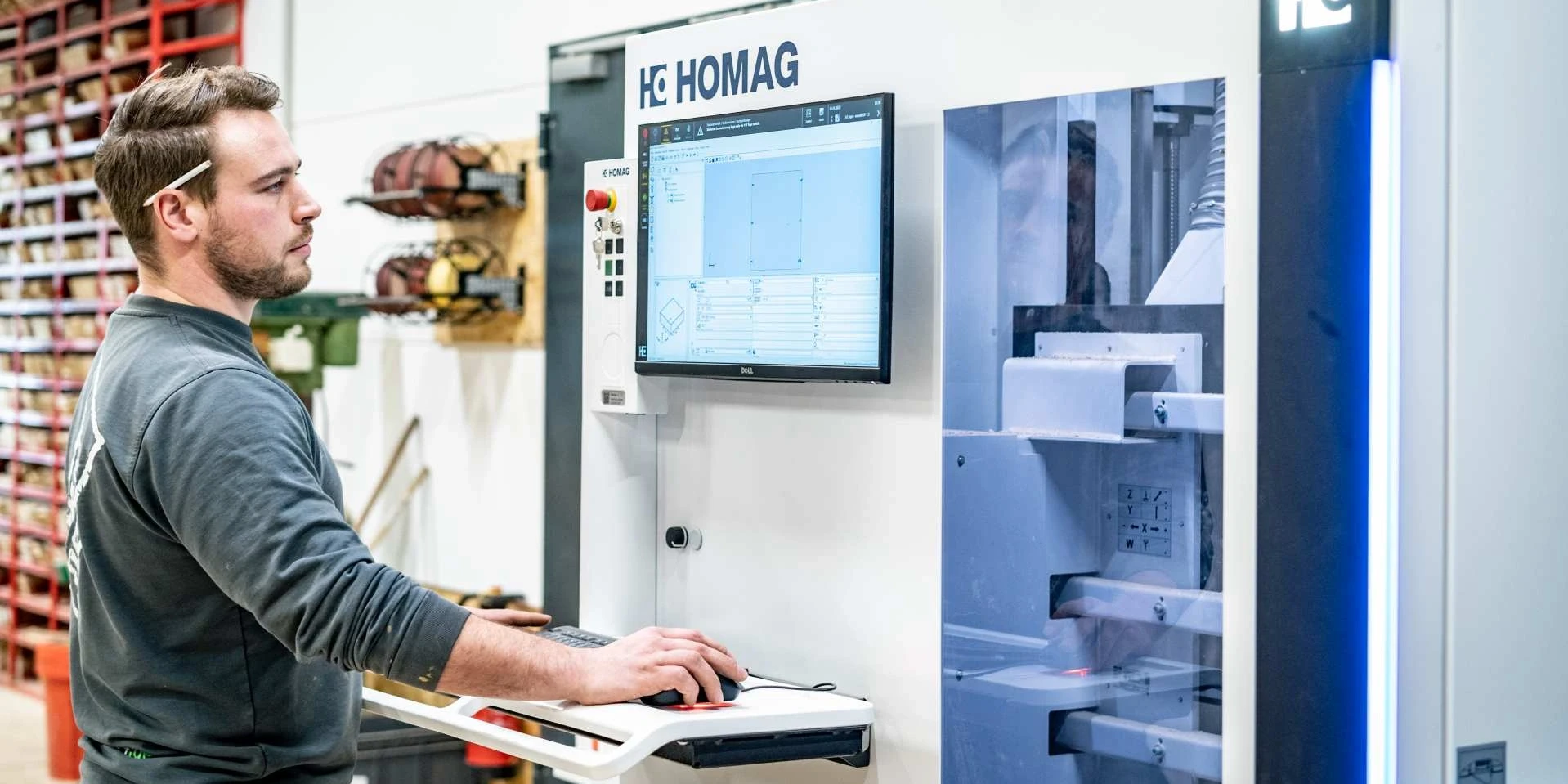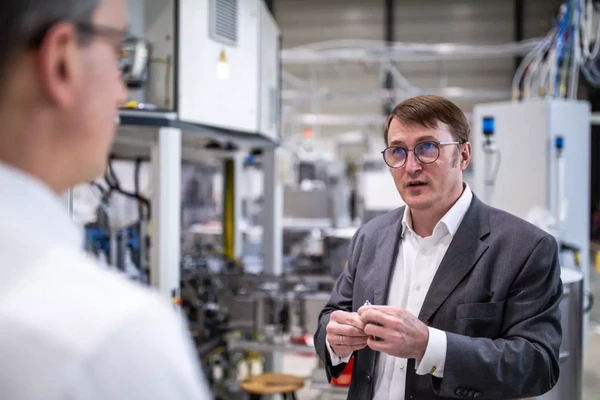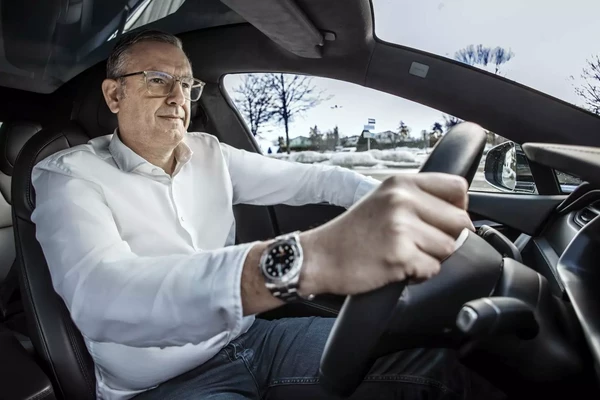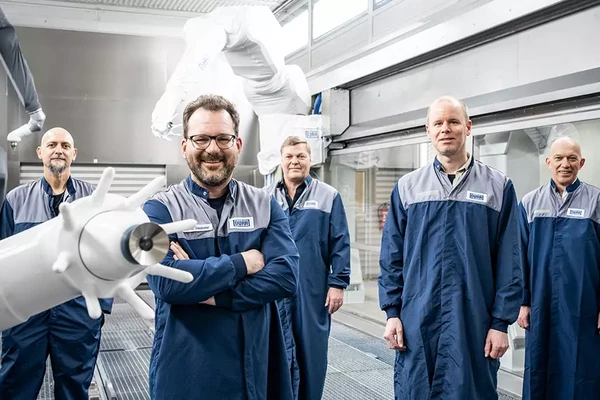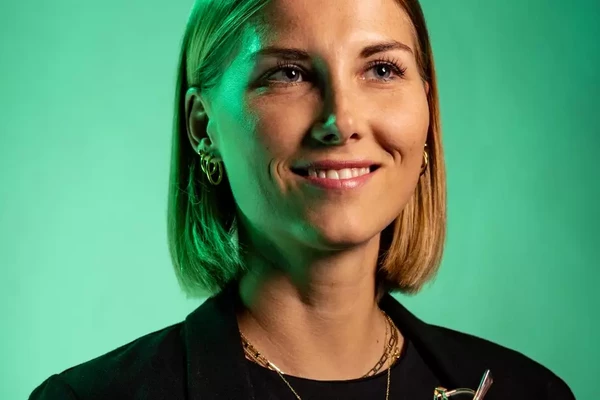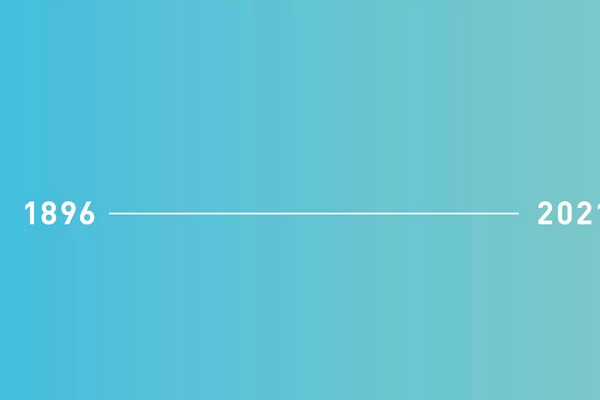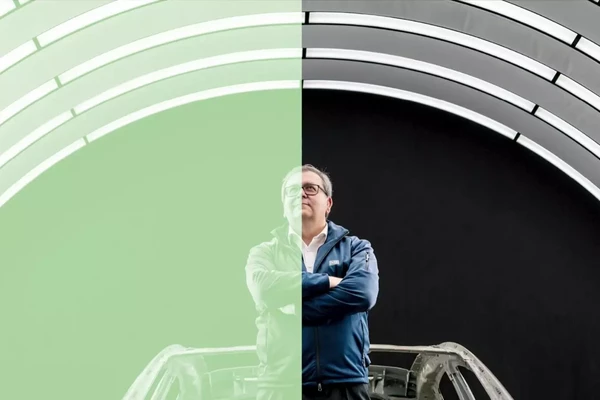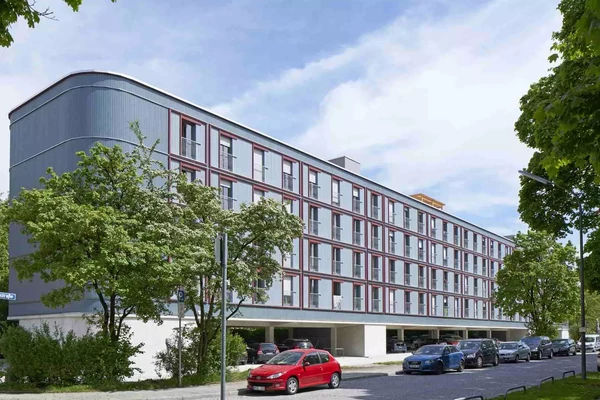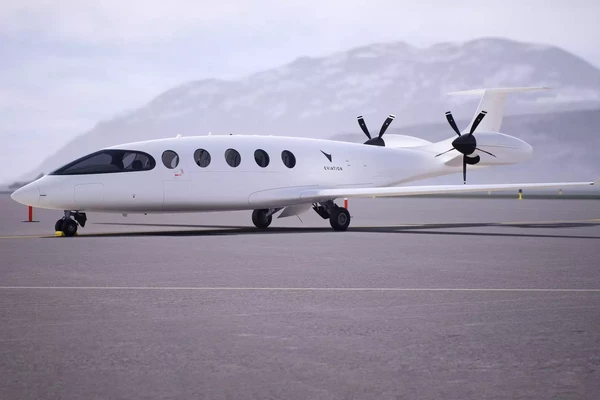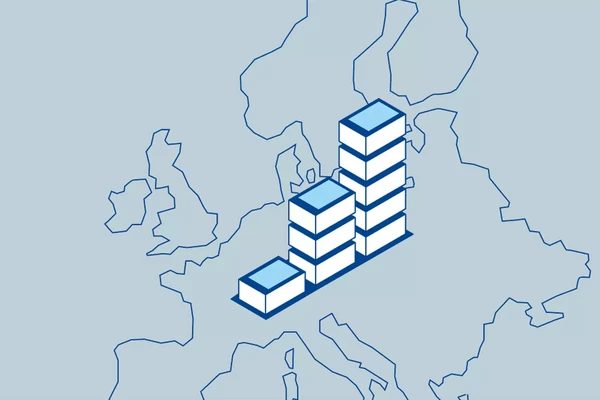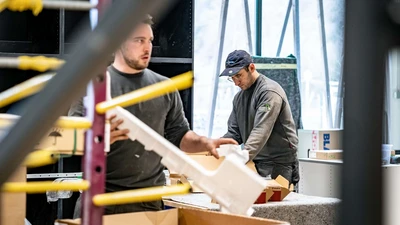
Helping hands
Mar 17, 2022
In the night from July 14 to 15, 2021, the flood in the West German Ahr Valley destroys Maik Rönnefarth’s business. Like many other businesses in the region, the master carpenter and his employees are left with nothing. But shortly afterwards, the willingness of friends and strangers to help is so great that fast reconstruction becomes possible. It is a story about cohesion and optimism.
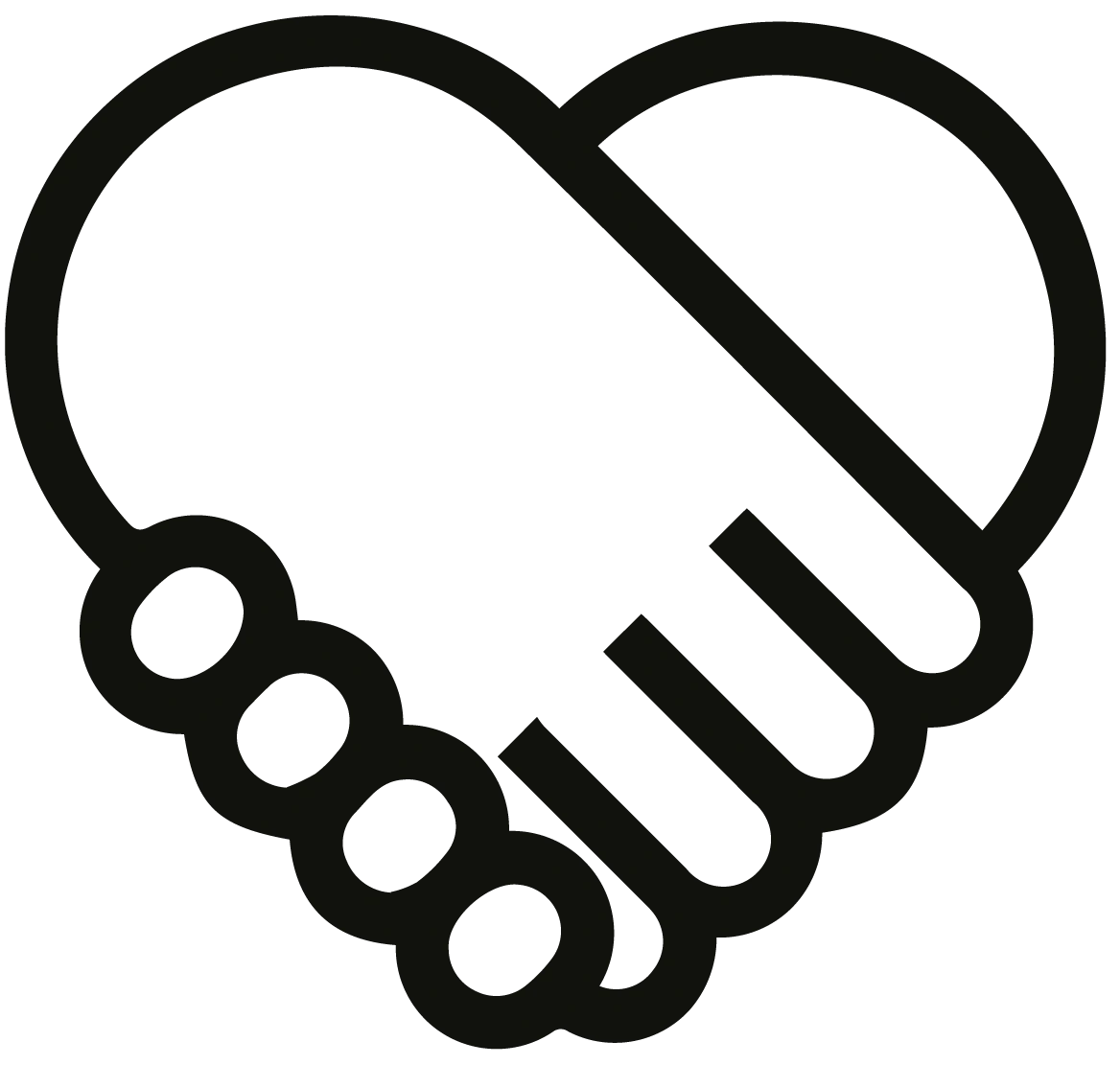
One day before the disaster, Maik Rönnefarth has his business in Dernau polished to perfection. A camera team has been ordered to shoot a commercial. The master carpenter is as yet unaware that these will be the last images of this workshop, with its state-of-the-art machine park. Then it starts to rain — and won’t stop for a long time.
When the tranquil little river Ahr swells into a raging torrent, the carpenter and his employees at first try to keep the water out. “We used sandbags and chipboard to seal the building,” Rönnefarth says. Today, the 45-year-old has to laugh about it. “We actually thought that might be enough.”
Shortly thereafter, a 1.40-meter-high column of water presses against the outer walls of the company building. At around 9 p.m., there are several thunderclaps. The gates can no longer withstand the pressure, and burst. Water rushes into the building, flooding the workshop and offices.
The murky brew also makes its way into the machines. They are the pride of the workshop — the carpentry workshop has regularly invested in new models. Its preferred supplier is the Dürr subsidiary HOMAG. Only recently, a digitally controlled machining center has been added, which saws, drills, and mills fully automatically. It is the showpiece of the company, which was founded in 2003 in a garage and has 30 employees today. Its cost: 270,000 euros. Now the machine is only worth its scrap value.
Obviously, we have been loyal to the right people over the years.
Maik Rönnefarth , master carpenter
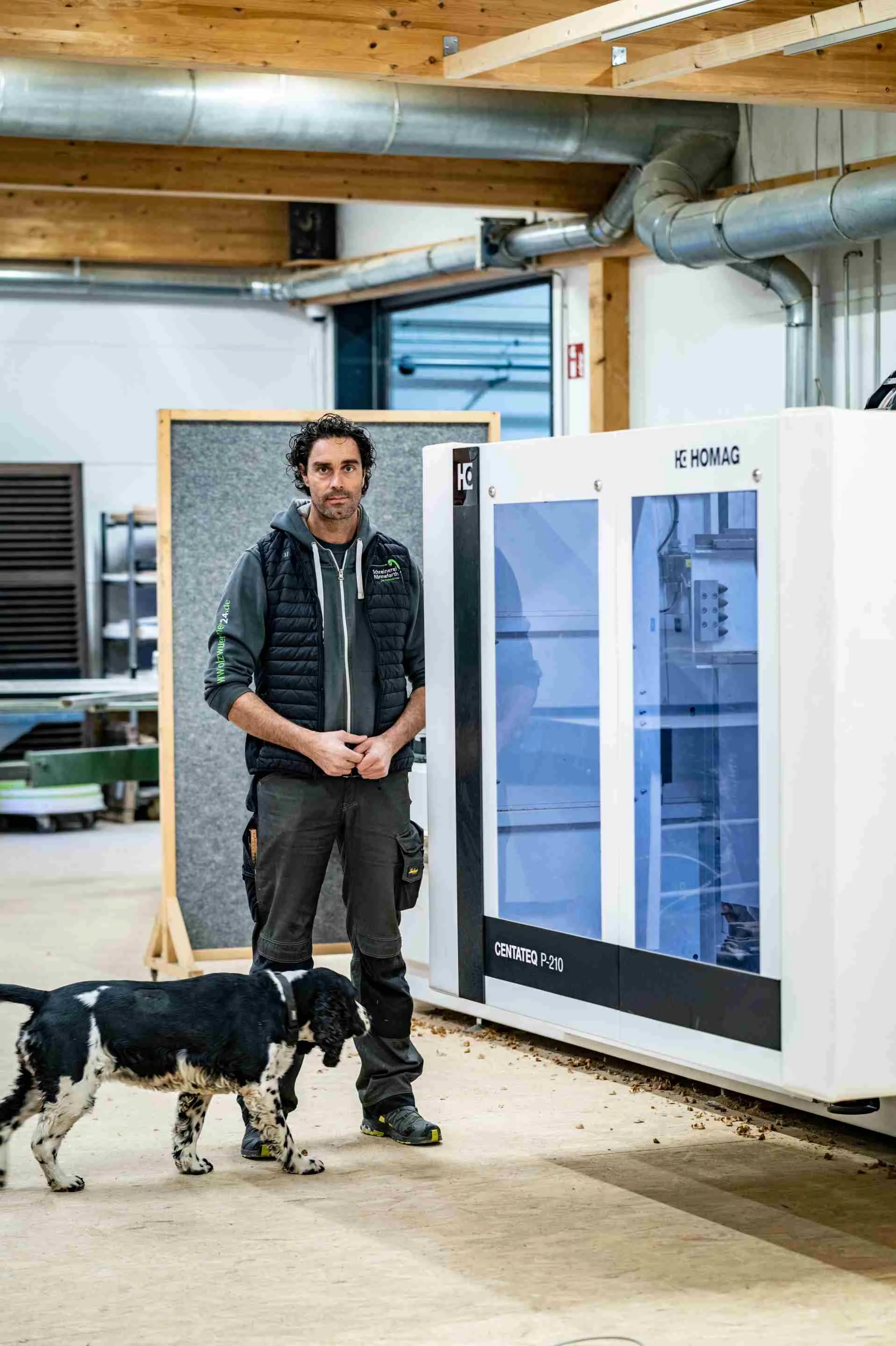
Guardians of the workshop: Maik Rönnefarth with dog Thaya in front of a new machining center.
Pictures of the flood night
Where there was rubble and debris in July 2021, six months later it smells of fresh paint. The first new machines are humming in the clean halls that cover a total of 2,200 square meters; employees are bent over their workbenches. Wearing a hoodie with the company logo, Rönnefarth sits in a meeting room and shows photos of the flood night over coffee and cookies. The total damage amounted to more than 4 million euros. The 18 destroyed machines alone accounted for 1.5 million euros.
Damage of this magnitude threatens the very existence of a craftsman’s business. Months may pass before the insurance company pays out, but many costs continue unabated. However, quitting was not an option for the master carpenter, who only makes important decisions together with his staff. “We never lost confidence in ourselves,” he says, describing the mood. And as strange as it may sound, he says, the positive experiences from that time are more important to him than the images of the disaster. They helped him a lot in the reconstruction.
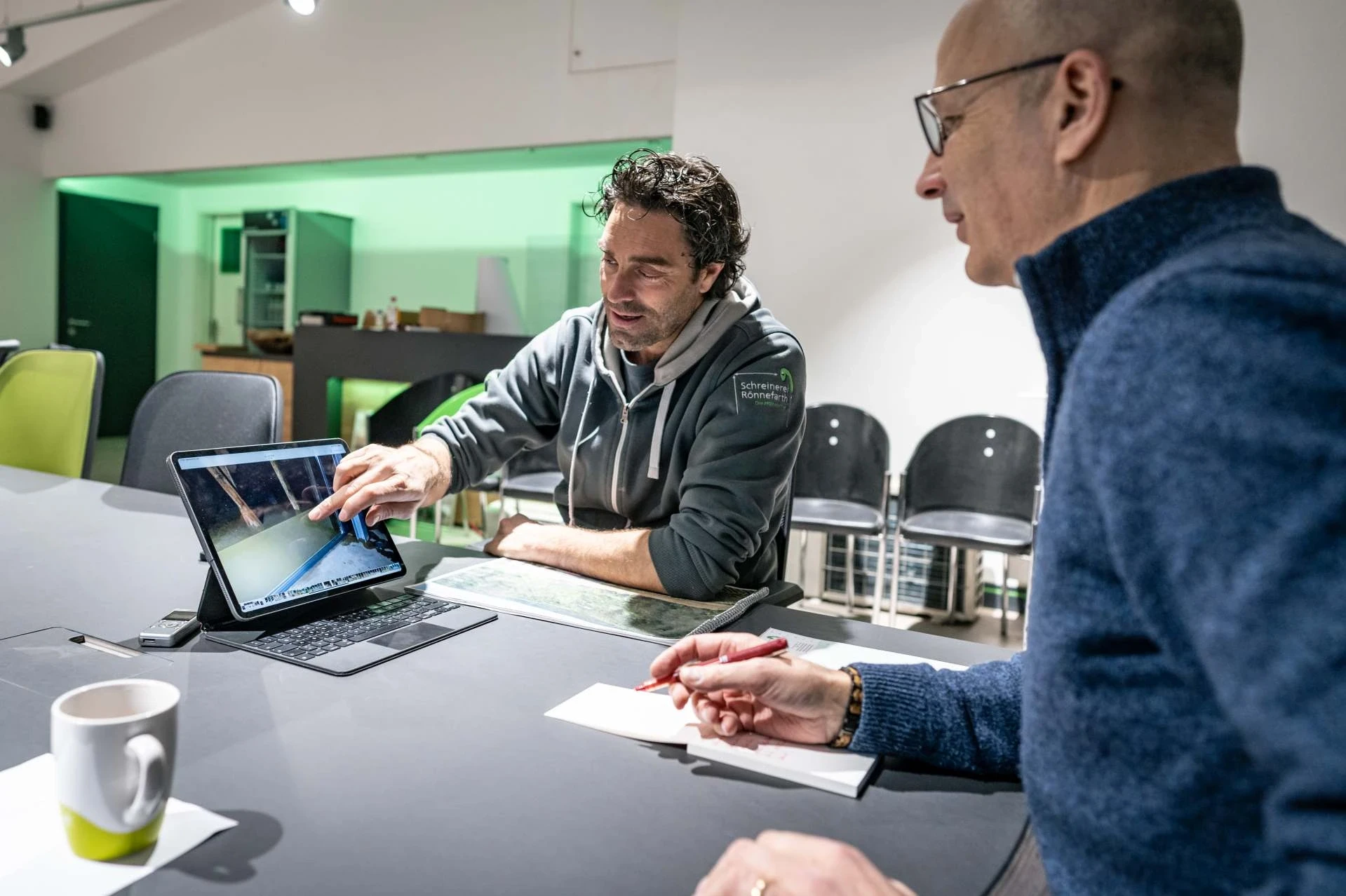
Reminder of a dramatic night: Maik Rönnefarth shows pictures of the flooded workshop.
Rushing to the rescue of data
One reason is the enormous willingness to help that became apparent in the weeks after the flood, but also the commitment of his own employees. He tells of his workshop manager, who, thinking quickly, runs into the IT room when the water enters and brings the server to a dry place, thus saving the valuable data. Others secure the computers installed in some machines.
Together with 13 of his employees who have rushed back to the workshop on the evening of the flood, he spends the night on the top floor of the building. There, they wait without electricity or drinking water until the flood level drops again after several hours, encouraging each other.
The next day, the extent of the devastation becomes apparent. The workshop is gone, numerous finished orders, including entire kitchens and dressing rooms, have been carried away by the water. Wooden boards, tools, small equipment — all gone. “We didn’t even have any brooms or shovels left to clean up mud and debris,” Rönnefarth says.
But soon after, a farmer with his tractor appears at the carpentry workshop. A neighbor has got hold of an excavator and offers to help. Together, they clear away the largest debris. They remove the swollen chipboard from the rack storage, salvage machine parts, and remove the remains of destroyed furniture that was to be delivered before the summer break.
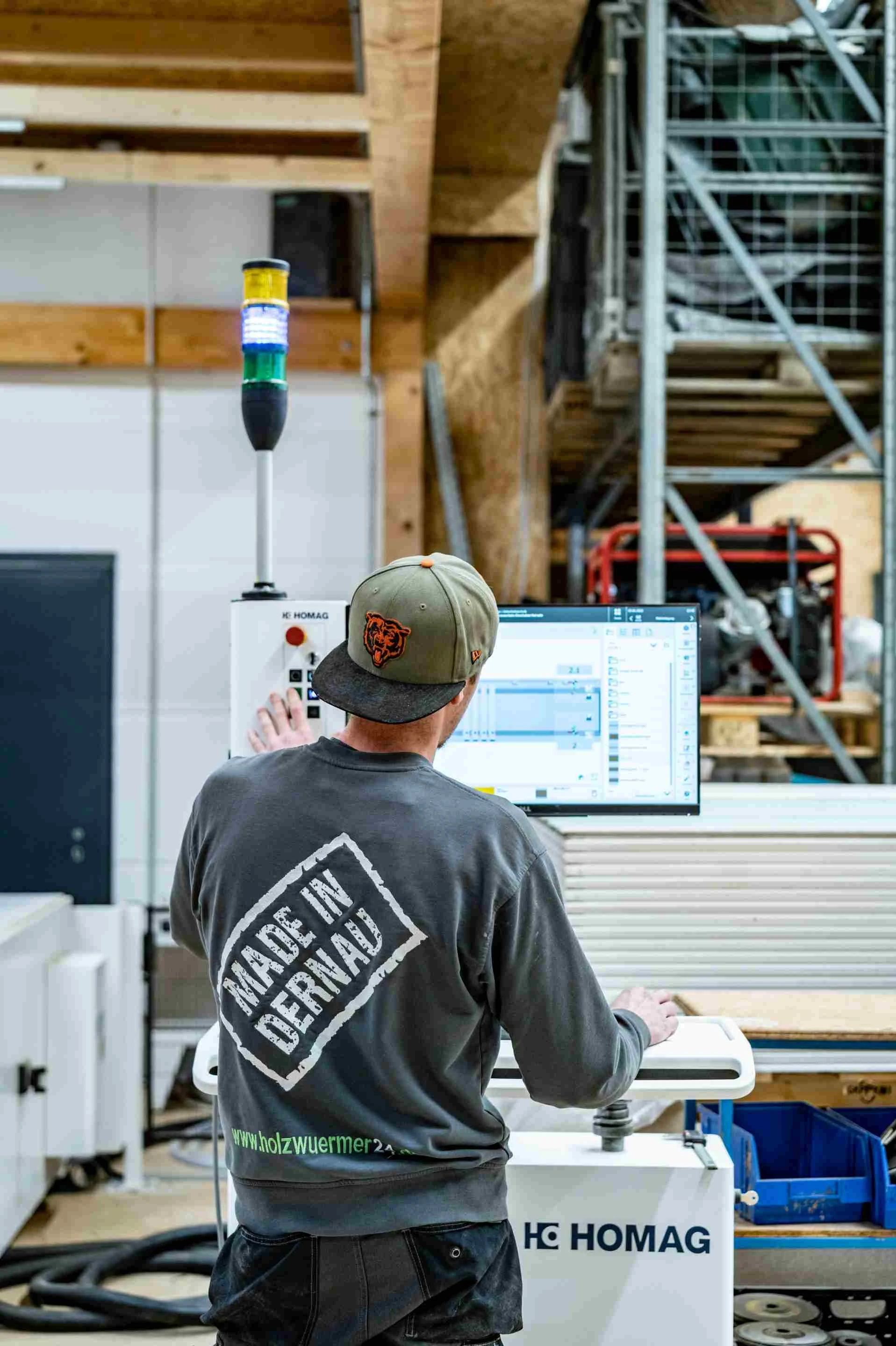
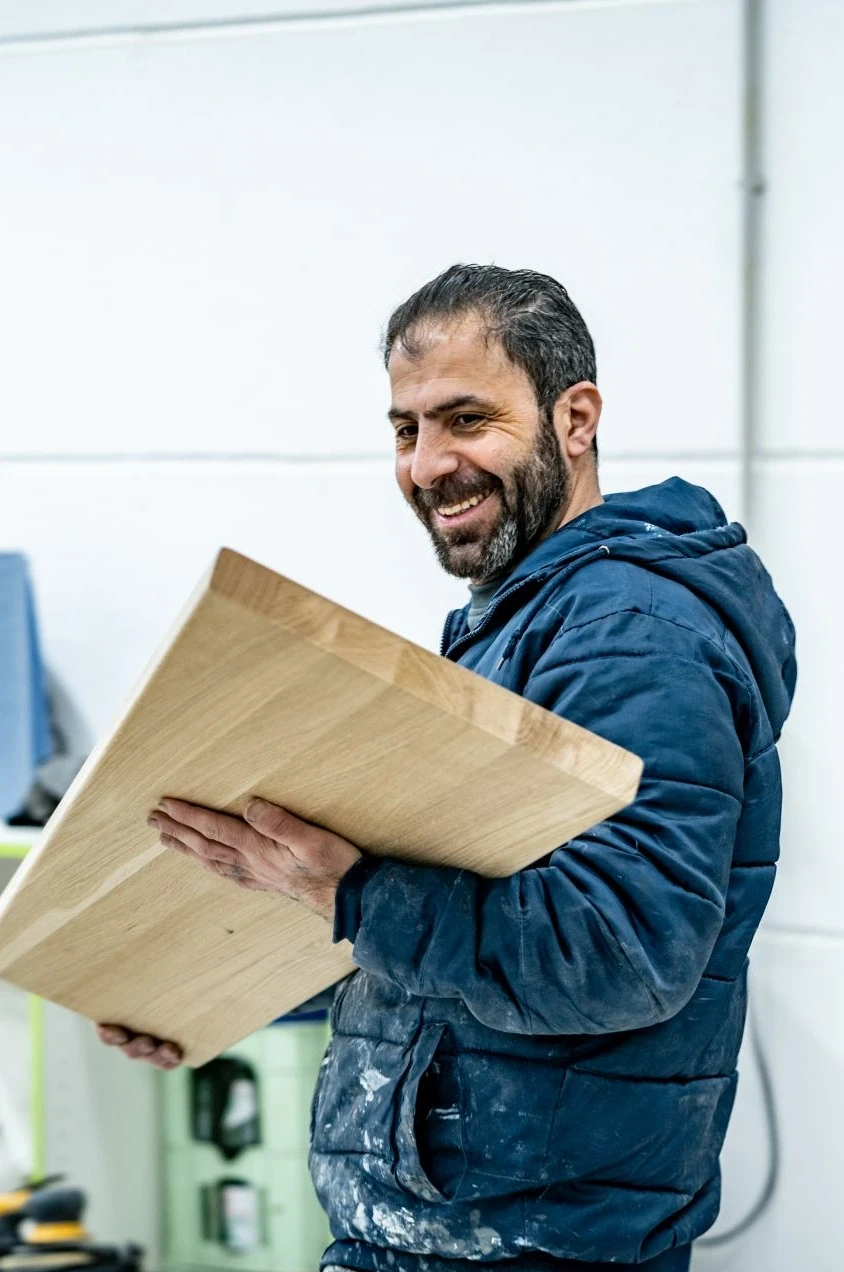
All hands on deck. Now that the aftermath of the flood has been cleared, there is plenty to do in the carpentry workshop again. Customers have been waiting patiently — now all orders are being completed.
Store manager donates food
Later, a customer who runs a swimming school comes forward. He mobilizes 35 athletes who sweep, clean, and shovel. On the way to the carpentry workshop, he buys mineral water, food, and cleaning equipment. When the store manager learns that the goods are destined for the flood zone, he refuses payment. “It was really incredible,” Rönnefarth says.
It is stories like these that the master carpenter keeps coming back to. The photos he produces show thoughtful faces, but also helpers laughing, high-fiving, and enjoying their work.
Over the next few days, more and more people rush to the Ahr Valley to help. This figure will rise to around 200,000 in the subsequent months. More volunteers also arrive at the carpentry workshop. How do you feed so many people? “We had unexpected help there, too,” Rönnefarth says. A restaurant owner, who is a friend of his, brings a snack bar to his courtyard. For several weeks, he provides a cook who prepares complete meals free of charge for all those present, three times a day.
Ten days later, even the power supply is up and running again in the company. And this is how it happened: A man learns about the precarious situation of the carpentry business on Facebook. Subsequently, he gets hold of a huge power generator in northern Hesse, which is taken 300 kilometers to Dernau by truck. A team of helpers connects the power unit. Rönnefarth can’t remember exactly who the men are or where they come from. “They did it and we trusted them.”
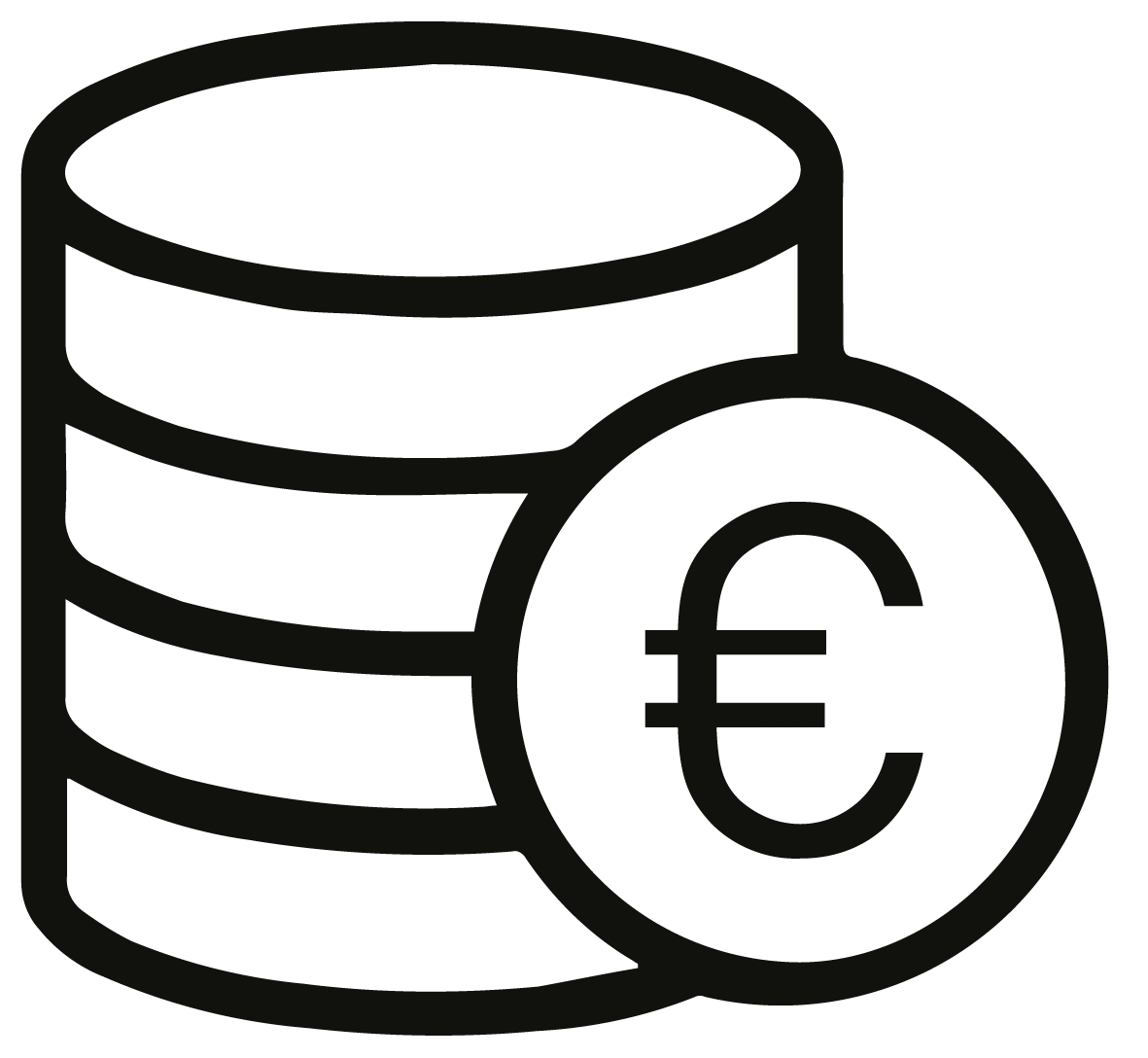
€200,000
In addition to loan machines and discounts for affected HOMAG customers, the Dürr Group’s aid package following the flood disaster also included a cash donation.
Large machines through short official channels
Two weeks after the flood, large sections of the carpentry workshop are ready for operation — only the machines are still missing. But there is already a solution for this problem as well: A HOMAG team from service and sales has made every effort to help the customer get back on his feet as quickly as possible. While some provide on-site assistance with insurance appraisals, others organize new machinery for the company. Since HOMAG usually sells individually configured models, this is not so easy.
Nevertheless, they find a way. A panel dividing saw, provided by a distribution partner from Düsseldorf, and a sanding machine from the HOMAG warehouse are the first to arrive. A machining center that is normally located in a HOMAG sales room is also transferred to the carpentry workshop on a transitional basis. Gradually, the company resumes its work as the cleanup continues. After a few months, HOMAG is also able to deliver the first new machines — of course, with price discounts and long payment terms. The short official channel has worked. Maik Rönnefarth feels vindicated. “Obviously, we have been loyal to the right people over the years.”
This also applies to financial matters. The firm’s banks grant him interim loans, which the company needs until the insurance companies pay out. The managing director of the district savings bank even stops by in person and donates three laptops to the company.
Willingness to help and insurance policies can, of course, never replace all the damage that occurs in such an event. “Now we have to make the most of the situation,” says Rönnefarth. He has used the momentum of the redevelopment to realize a long-planned building extension. The company is growing and needs space. The amount of work has not diminished, even after the flood. Not a single order was cancelled. The next machines are about to be delivered — and just six months after the disaster, the company is working as before.
